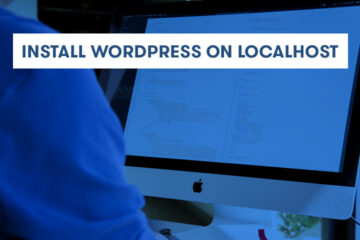Have you ever interacted with a chatbot that felt like a real human? If you have, chances are that you were talking to a chatbot powered by ChatGPT. Developed by OpenAI, ChatGPT is an advanced conversational AI that can simulate human-like conversations. It is one of the most advanced chatbot AIs in the world, and it is changing the way businesses interact with their customers.
In this article, we will explore what ChatGPT is, how it works, its benefits, and how it is transforming the world of conversational AI.
What is ChatGPT?
ChatGPT is an advanced chatbot AI developed by OpenAI. It is based on the GPT-3 architecture and is designed to simulate human-like conversations. ChatGPT can understand natural language queries and respond in a way that is similar to how a human would respond. It can answer questions, provide recommendations, and engage in small talk.
How does ChatGPT work?
ChatGPT is powered by deep learning algorithms that allow it to understand and generate natural language. It uses a technique called unsupervised learning, which means that it learns from large amounts of unstructured data. This data includes everything from books and articles to social media posts and customer service transcripts.
Once ChatGPT has been trained on this data, it can generate text that is similar to the input it has received. This allows it to generate responses to user queries in a natural and conversational manner.
Benefits of ChatGPT
ChatGPT offers a wide range of benefits, both for businesses and for users. Some of the key benefits of ChatGPT include:
- Improved customer service: ChatGPT can handle large volumes of customer queries and respond in a way that is both fast and accurate. This can help businesses to improve their customer service and reduce the workload of their customer support teams.
- Personalized recommendations: ChatGPT can analyze user data and generate personalized recommendations based on their preferences and past behavior. This can help businesses to improve their marketing efforts and increase sales.
- Increased efficiency: ChatGPT can handle multiple conversations simultaneously, which can help businesses to improve their efficiency and reduce costs.
- Human-like interactions: ChatGPT can simulate human-like conversations, which can help to create a more engaging and natural user experience.
Use cases for ChatGPT
ChatGPT has a wide range of use cases across different industries. Some of the most common use cases include:
- Customer service: ChatGPT can handle customer queries and provide support 24/7. This can help businesses to improve their customer service and reduce the workload of their support teams.
- E-commerce: ChatGPT can analyze user data and provide personalized product recommendations. This can help businesses to increase sales and improve customer satisfaction.
- Healthcare: ChatGPT can provide basic medical advice and assist with appointment scheduling. This can help to improve access to healthcare services and reduce the workload of healthcare professionals.
FAQs
Q: Can ChatGPT replace human customer service representatives? A: While ChatGPT can handle a large volume of customer queries, it cannot replace human customer service representatives entirely. However, it can help to reduce the workload of customer service teams and improve response times.
Q: How does ChatGPT ensure user privacy? A: ChatGPT uses encryption and other security measures to ensure that user data is kept secure and confidential.




